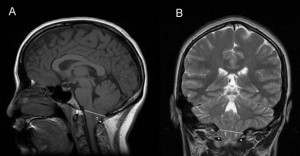Inflammation as a New Therapeutic Approach For Alzheimer’s Disease
 In the next several decades the number of Alzheimer’s patients will continue to dramatically increase. Various teams of researchers worldwide are feverishly investigating precisely how the illness develops.
In the next several decades the number of Alzheimer’s patients will continue to dramatically increase. Various teams of researchers worldwide are feverishly investigating precisely how the illness develops.
Inflammation as a New Therapeutic Approach For Alzheimer’s Disease
A team of scientists under the guidance of the University of Bonn and University of Massachusetts (USA) and with the participation of the German Center for Neurodegenerative Diseases have discovered a new signaling pathway in mice which is involved in the development of chronic inflammation which causes nerve cells in the brain to malfunction and die off. The results are now being published in the renowned scientific journal “Nature”.
Alzheimer’s disease gradually leads to the destruction of nerve cells and thus to significant losses in memory formation and recall. “Many years before the initial symptoms occur, so-called plaques, which consist of incorrectly folded beta-amyloid peptides, form in the brain of affected persons,” says lead author Prof. Dr. Michael T. Heneka, director of the Clinical Neurosciences study group at the Neurology Clinic of the University of Bonn and researcher at the German Center for Neurodegenerative Diseases (DZNE). In addition, there are abnormal tau protein deposits in the brain cells of the patients. “As a result of a signal cascade, there is a chronic inflammatory reaction and the progressive loss of nerve cells,” reports Prof. Dr. Eicke Latz from the Institute of Innate Immunity of the Bonn University Hospital, who also performs research for the DZNE and the University of Massachusetts Medical School (USA).
Caspase-1 is increased in the brains of Alzheimer’s patients
The scientists from the University of Bonn and the DZNE, in a successful alliance of neurologists and immunologists together with their colleagues from the Caesar Research Center and the Technical University of Braunschweig, have discovered a new signaling pathway which is involved in the development of chronic inflammation of the brain cells. Caspase-1 plays a key role and it is jointly responsible for the activation of the inflammatory reaction. The researchers detected substantially increased amounts of caspase-1 in the brains of Alzheimer’s patients in comparison to healthy persons. These increased levels were associated with chronic inflammatory reactions of the immune cells in the brain. The scientists also observed these findings in genetically modified mice who represent a well established model of Alzheimer’s disease.
Silent genes prevent inflammation and memory loss
The gene NLRP3 is also crucially involved in the inflammatory signaling pathways which lead to the degneration and loss of brain cells. The scientists therefore deactivated the NLRP3 gene as well as caspase-1 in the Alzheimer’s mice. As a result, there was no inflammation in the brains of these animals and they did not develop any memory loss. In addition, there was shown to be far less beta-amyloid peptide deposited in the brain cells of the genetically silent mice. It is evident that the non-inflamed cells were able to dispose of the deposited plaques much better as “metabolic waste.” If the genes for caspase-1 and NLRP3 are muted, the nerve cells and memory are evidently protected from the typical Alzheimer’s processes.
Possible starting point for new therapies
These results indicate a starting point which could possibly aid in the development of new forms of therapy for the treatment of early-stage Alzheimer’s disease. “We are still in the basic research stage and thus therapeutic success cannot be foreseen at this time point ,” says Prof. Heneka. “There is still a long way to go until the first clinical studies.”
Read more: Inflammation as a New Therapeutic Approach For Alzheimer’s Disease | Medindia http://www.medindia.net/news/inflammation-as-a-new-therapeutic-approach-for-alzheimers-disease-111868-1.htm#ixzz2GJpoDIZm
